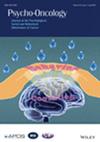癌症患者的家庭照顾者:伴侣、父母和成年子女照护者的负担和支持偏好
IF 3.3
2区 医学
Q2 ONCOLOGY
引用次数: 0
摘要
本研究的目的是:(1) 确定父母、伴侣和成年子女照护者在社会心理负担和支持需求方面的异同;(2) 确定家庭照护者在同伴支持计划方面的支持需求。方法对癌症患者的家庭照护者进行了半结构式访谈(n = 30)。对访谈内容进行誊写,并通过归纳内容分析确定主题。结果在所有三组照顾者中确定了十类负担。伴侣强调了护理带来的时间负担,父母和成年子女护理者则强调了情感负担。所有照顾者都希望能有同伴间的交流,这样就不会感到孤独,可以分享情感,并为接下来的工作做好准备。结论伴侣、父母和成年子女照护者描述了相似的照护负担。他们希望同伴支持计划能让他们与了解自己情况的人分享经验。因此,照顾者希望能与同伴进行良好的匹配,以提高同伴交流的积极效果。本文章由计算机程序翻译,如有差异,请以英文原文为准。
Family Caregivers of Cancer Patients: Burdens and Support Preferences of Partner, Parent and Adult‐Child Caregivers
ObjectiveThe aim of this study is to (1) identify similarities and differences in psychosocial burdens and support needs experienced by parent, partner and adult‐child caregivers and (2) identify support needs of family caregivers regarding peer support programs.MethodsSemi‐structured interviews (n = 30) were conducted with family caregivers of cancer patients. Interviews were transcribed and analyzed by inductive content analysis to identify themes.ResultsTen categories of burden were identified for all three groups of caregivers. Partners emphasized the time burden through caregiving, parents and adult‐child caregivers accentuated the emotional burden. All caregivers wished for peer‐to‐peer exchange which will provide the feeling not to be alone, to share emotions and to prepare for what will come next. Preferences for matching with peers with similar prognosis for their sick relative and similar living conditions were found.ConclusionsPartner, parent and adult‐child caregivers describe similar burdens of caregiving. They wish for peer support programs that allow them to share their experiences with persons who understand their situation. Therefore, caregivers desire a good match with peers to enhance the positive outcome of peer exchange.
求助全文
通过发布文献求助,成功后即可免费获取论文全文。
去求助
来源期刊

Psycho‐Oncology
医学-心理学
CiteScore
6.30
自引率
8.30%
发文量
220
审稿时长
3-8 weeks
期刊介绍:
Psycho-Oncology is concerned with the psychological, social, behavioral, and ethical aspects of cancer. This subspeciality addresses the two major psychological dimensions of cancer: the psychological responses of patients to cancer at all stages of the disease, and that of their families and caretakers; and the psychological, behavioral and social factors that may influence the disease process. Psycho-oncology is an area of multi-disciplinary interest and has boundaries with the major specialities in oncology: the clinical disciplines (surgery, medicine, pediatrics, radiotherapy), epidemiology, immunology, endocrinology, biology, pathology, bioethics, palliative care, rehabilitation medicine, clinical trials research and decision making, as well as psychiatry and psychology.
This international journal is published twelve times a year and will consider contributions to research of clinical and theoretical interest. Topics covered are wide-ranging and relate to the psychosocial aspects of cancer and AIDS-related tumors, including: epidemiology, quality of life, palliative and supportive care, psychiatry, psychology, sociology, social work, nursing and educational issues.
Special reviews are offered from time to time. There is a section reviewing recently published books. A society news section is available for the dissemination of information relating to meetings, conferences and other society-related topics. Summary proceedings of important national and international symposia falling within the aims of the journal are presented.
 求助内容:
求助内容: 应助结果提醒方式:
应助结果提醒方式:


